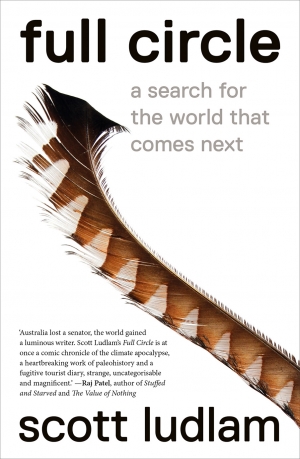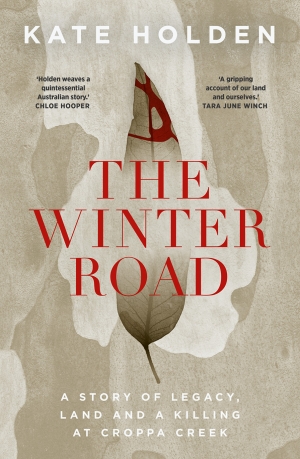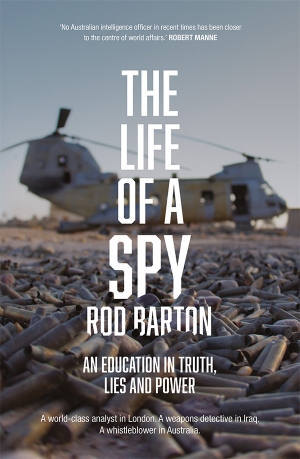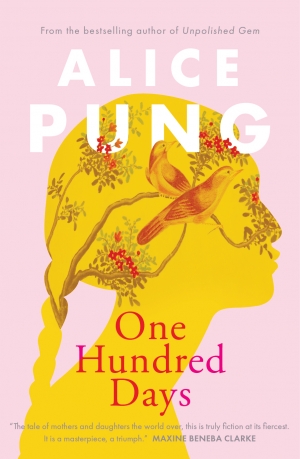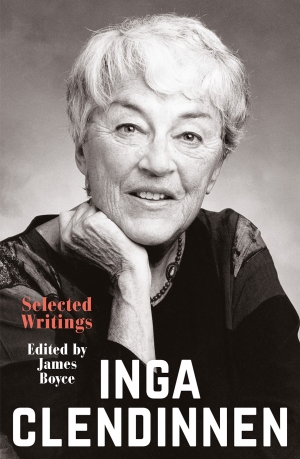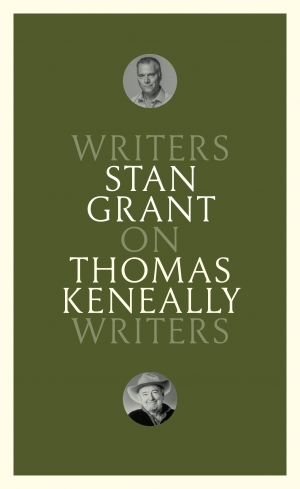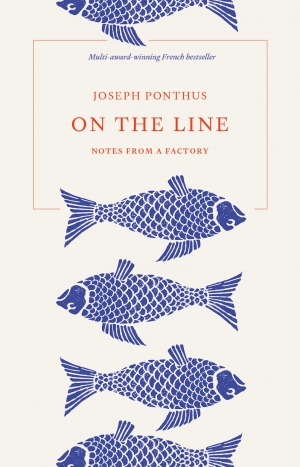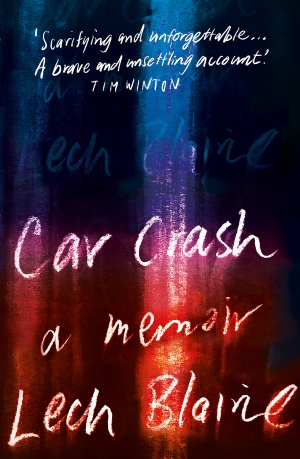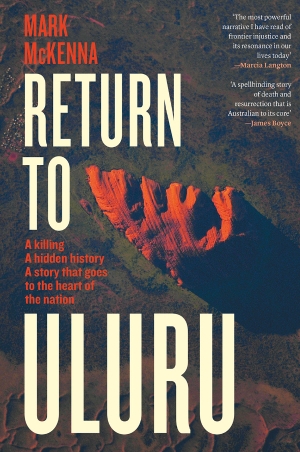Black Inc
Dominic Kelly reviews 'Full Circle: A search for the world that comes next' by Scott Ludlam
Amid the daily dramas and momentous impact of the ongoing coronavirus pandemic, it’s easy to forget that, just four years ago, Australia was enduring a very different – and much less serious – kind of political crisis. In July 2017, the Australian Greens’ Scott Ludlam resigned from the Senate, having been advised that his failure to renounce his long-dormant New Zealand citizenship meant that he was a dual citizen, and in breach of section 44 of the Constitution. This kicked off a farcical procession of resignations, High Court referrals, by-elections, and countbacks. This ultimately resulted in fifteen MHRs and senators from across the political spectrum being ruled ineligible to sit in the federal parliament.
... (read more)Cameron Muir reviews 'The Winter Road: A story of legacy, land and a killing at Croppa Creek' by Kate Holden
Landholders are cutting, crushing, scraping, spraying, bulldozing, and burning native woodlands and grasslands. Displaced koalas are shot, their bodies dumped in smouldering stacks. Land values double. In 2012, the Turnbull family of Croppa Creek, in north-west New South Wales, bought a property knowing that clearing would be prohibited. Under the direction of patriarch Ian Turnbull, they started clearing before the contracts were signed. They cleared when they were prosecuted, they cleared the areas ordered to be remediated, they cleared as they awaited decision on a second set of charges. They were clearing on the day Turnbull shot and killed government compliance officer Glen Turner. Against this turmoil, Kate Holden forges a sanctuary for contemplation in The Winter Road, which raises questions about our relationships and responsibilities on this continent.
... (read more)Andrew West reviews 'The Life of a Spy: An education in truth, lies and power' by Rod Barton
When did the rationale for the Iraq War – which began in 2003 and still rumbles today – go from being a mistake, to a self-deception, to an outright lie? When did it dawn on the Bush Jr administration and its key allies in London and Canberra that the ostensible reason for the invasion of Iraq had disappeared, probably literally, under the sands of Mesopotamia? By the time of the invasion, Saddam Hussein’s regime possessed no weapons of mass destruction that could threaten another country. The Iraqi dictator may have desired such weapons, but a combination of international sanctions and the mere fear of retribution thwarted his plans.
... (read more)It’s difficult to describe what it’s like to be raised in a Chinese family, especially when you are surrounded by markers of Western society. There is no such thing as talking back to your parents or refusing to do what they say. As a child, I never went to sleepovers. During my teenage and young adult years, I felt increasingly trapped in my own home. Everything I did was scrutinised; my parents never seemed to take into account my wants or needs. I found myself grasping for any scrap of independence, usually through lying or stealing or a combination of the two. As children, we are continually told that adults do things to protect us, especially when they are things we don’t particularly like. But when does protection morph into something uglier? When does it smother us, as if our agency has been stripped from us?
... (read more)Tom Griffiths reviews 'Inga Clendinnen: Selected writing' edited by James Boyce
It is wonderful to immerse oneself for days in the precise, elegant, passionate words of historian Inga Clendinnen (1934–2016), as this welcome collection of her writings enables one to do. Clendinnen’s distinctive voice comes through: warm, confidential, witty, and driven by a fierce intelligence. All her major writings are here – essays, articles, lectures, memoirs, and extracts from her books – deftly selected by James Boyce, a historian thirty years younger than Clendinnen and himself a highly original thinker and writer. As Boyce observes in his perceptive introduction, ‘Clendinnen’s subject was nothing less than human consciousness.’
... (read more)Let’s start with a portrait. The year is 1993. The book is My Kind of People. Its author is Wayne Coolwell, a journalist. Who are Coolwell’s kind of people? Ernie Dingo, for one. Sandra Eades. Noel Pearson. Archie Roach. And there, sandwiched between opera singer Maroochy Barambah and dancer Linda Bonson is Stan Grant, aged thirty. Circa 1993, Grant is a breakthrough television presenter and journalist whose mother remembers him coming home to read the newspaper while the other kids went to play footy. ‘[T]here was a maturity and a sense of order about him,’ Coolwell writes. The order belies his parents’ life of ‘tin humpies, dirt floors, and usually only the one bed for all the kids in the family’.
... (read more)New poetry by Mark Anthony Cayanan, Jerzy Beaumont, and Erik Jensen
Few books blur the line between beauty and ugliness more than Thomas Mann’s Death in Venice (1912). The novella follows the ageing writer Aschenbach, whose absurd over-refinement – born in part of repressed homosexuality – is dismantled by Tadzio, a beautiful boy he encounters on holiday in Venice. His obsession with Tadzio represents the displacement of mortality (Aschenbach will soon succumb to cholera) through a wilful surrender to decadence and decay.
... (read more)Valentina Gosetti reviews 'On the Line: Notes from a factory' by Joseph Ponthus, translated by Stephanie Smee
Few books immediately suspend time; few need no warm-up and almost demand to be read, reread, underlined. Stephanie Smee’s rendition of Joseph Ponthus’s multi-award-winning first solo book, On the Line: Notes from a factory, is one such read. It is the autobiographical story of an intellectual with a career in social work in the suburbs of Paris, who, having moved to Brittany for love, can’t find a job in his field and is forced to sell his labour as a casual worker in the local food-processing industry. Here we couldn’t be further from postcard Brittany, whose wild nature, hazy skies, mysterious language, and inhabitants inspired a Romantic generation of poets in search of an exotic fix without the hassle of leaving the Hexagon.
... (read more)Young writers may turn to the page for catharsis – for writing-as-therapy – but that’s not why we read them. The ageist view, that a writer mustn’t pen their memoirs until they are older and learned, neglects the breadth of excellent work by precocious writers who have a story to tell. Naïveté and inexperience can enchant, sometimes more so than brilliant craftsmanship or intellectual maturity.
... (read more)Barry Hill reviews 'Return to Uluru: A killing, a hidden history, a story that goes to the heart of the nation' by Mark McKenna
The distinguished historian Mark McKenna has written an elegant and hungry book about the pull of Uluru, that place of mysterious significance to Australians, black and white. Of course, in recent times, the Uluru Statement from the Heart – the heart that had a stake driven through it the moment it was entrusted to the most powerful whites in Canberra – is a complicated domain of passion and polemic. McKenna’s work, pro-Aboriginal and postcolonial in spirit, is itself an addition to the long history of romancing Uluru, albeit with a focus on a hero who seems like an anti-hero by the time this book is done.
... (read more)
